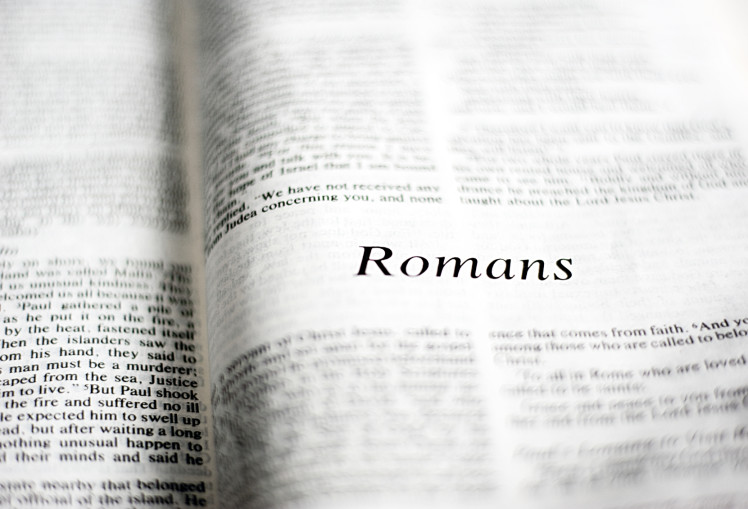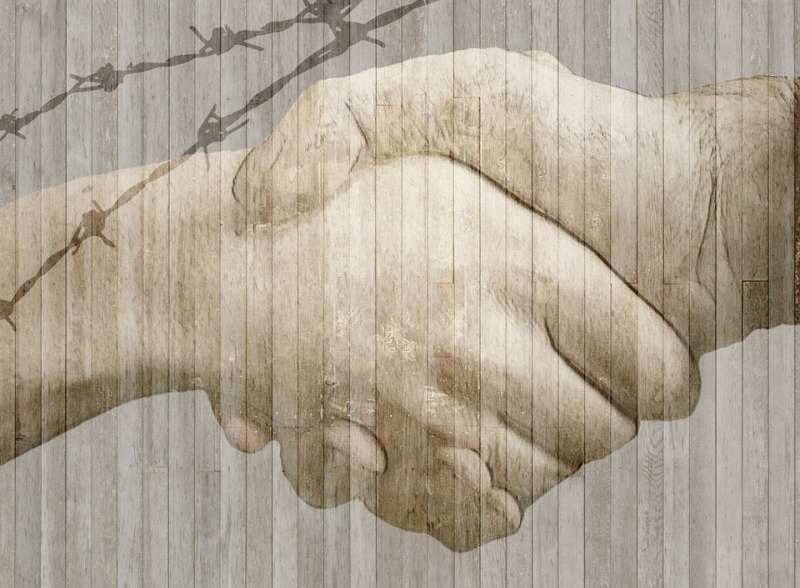Blog

Romans Bible Guide – Day 36
March 21, 2016
Previously, in Romans: In his instructions on community life, Paul is advocating for radical inclusion, radical mutual respect, and radical trust in God’s judgment, not ours.
Romans 14:13-23
13 Let us therefore no longer pass judgment on one another, but resolve instead never to put a stumbling block or hindrance in the way of another. 14 I know and am persuaded in the Lord Jesus that nothing is unclean in itself; but it is unclean for anyone who thinks it unclean. 15 If your brother or sister is being injured by what you eat, you are no longer walking in love. Do not let what you eat cause the ruin of one for whom Christ died. 16 So do not let your good be spoken of as evil. 17 For the kingdom of God is not food and drink but righteousness and peace and joy in the Holy Spirit. 18 The one who thus serves Christ is acceptable to God and has human approval. 19 Let us then pursue what makes for peace and for mutual upbuilding. 20 Do not, for the sake of food, destroy the work of God. Everything is indeed clean, but it is wrong for you to make others fall by what you eat; 21 it is good not to eat meat or drink wine or do anything that makes your brother or sister stumble. 22 The faith that you have, have as your own conviction before God. Blessed are those who have no reason to condemn themselves because of what they approve. 23 But those who have doubts are condemned if they eat, because they do not act from faith; for whatever does not proceed from faith is sin.

Points of Interest:
- ‘resolve instead never to put a stumbling block or hindrance in the way of another’ – The language of “stumbling block” recalls comments from 11:9-12 about the hurdles that get between people and their inclusion in God’s story of love and grace. The judgment of others can function as one kind of stumbling block, but so can insensitivity to the cultural scruples of others. Paul doesn’t want the so-called strong – the majority Gentile believers – to offend the Jews among them by serving them non-kosher foods at their worship feasts. This reminds me of how our educated, empowered women defer to some of very traditional gender norms when gathering for interfaith events with our Muslim neighbors. Are those gender norms “right”? Personally, I don’t think so, but that’s not the question we’re asking. We’re looking to remove stumbling blocks from people’s experience of God’s love.
- ‘I know and am persuaded in the Lord Jesus that nothing is unclean in itself’ – Though Jewish, Paul’s own conclusion is that the more libertine practices of the Gentile believers are on to something. Nothing created by God, certainly no food, is inherently unclean, he says. This is not what the Mosaic law taught him and not how he lived prior to his own encounter with Jesus. If anyone could insist on this as a new law, it would be Bible-writer Paul. Yet when it comes to ethical practices in the community of faith, Paul advocates for a limited relativism. Receiving the welcome of Jesus, and doing so in united community, is more important than agreement on moral practice.
- ‘if your brother or sister is being injured by what you eat, you are no longer walking in love’ – Love for neighbor, not purity of principle, is the highest value in the Jesus community.
- ‘the kingdom of God is not food and drink but righteousness and peace and joy in the Holy Spirit’ – Here’s another theological grounds for Paul’s reasoning. The nature and aims of Jesus’ kingdom are joy, peace, and right living (which is primarily right relationship.) Controversial matters of ethical practice are secondary.
- ‘the one who thus serves Christ is acceptable to God and has human approval’ – Follow Jesus as Lord as Paul is describing in this chapter, and you’ll make God and the people around you happy, and both of those are worthwhile aims, conducive to “righteousness and peace and joy.”
- ‘what makes for peace and for mutual upbuilding’ – This is another barometer for healthy living in community – defaulting to the behavior and attitude and lifestyle that will promote peace and one’s own and others’ betterment and encouragement.
- ‘do not, for the sake of food, destroy the work of God’ – I love the simplicity of this line. The work of God is clearly about people – inclusion of people in the family of God, uniting of Jew and Gentile in the “olive tree” God is growing (11:17-24), and the development of a community of love and joy and peace. Why would we ever risk destroying that over relatively petty controversies?
- ‘the faith that you have, have as your own conviction before God’ – Peace, inclusion, and mutual welcome don’t mean that our lives and our choices aren’t important. Just as we’re off if we do what causes our neighbor to stumble, we’re off if we do what we don’t approve of or even have doubts about. Our own consciences and convictions and lives of faith matter, and we’re encouraged to pursue them earnestly, while also holding the greater peace and encouragement of the community in mind.
Taking It Home:
For you – Is there anything in how you speak or act that makes it harder for other people to follow Jesus or to be part of your church or community group? How can you pursue peace and mutual upbuilding in your church, without betraying your own conscience?
For your six – Pray that each of your six would experience acceptance and welcome by community today, and specifically that God would remove any stumbling blocks they might have that would prevent them from having faith in God.

